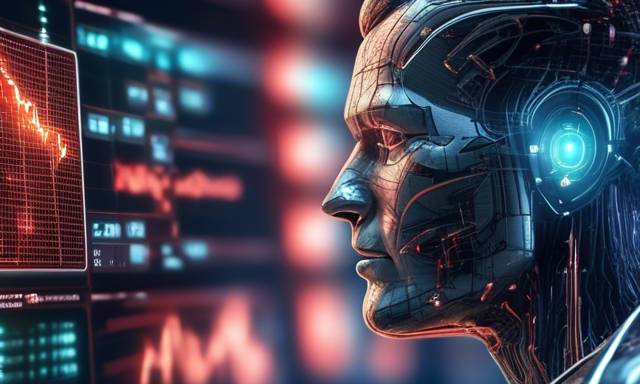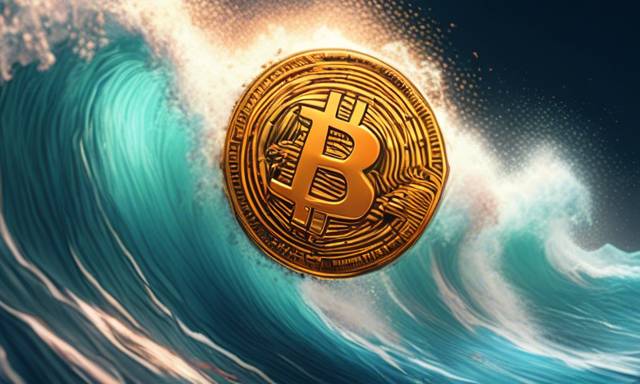Insights from Peter Tuchman: Wall Street’s Iconic Trader 🏦
Peter Tuchman, often referred to as the “Einstein of Wall Street,” has become a well-known figure due to his expressive demeanor and unique style during market fluctuations. He has spent almost 40 years on the New York Stock Exchange (NYSE), starting his career in the mid-1980s as a teletypist before transitioning to trading. In a recent episode of The Ice Coffee Hour podcast, Tuchman shared his insights on the stock market, technological advancements like artificial intelligence, and the obstacles that lie ahead.
From the Trading Floor to the Spotlight 🌟
Tuchman reminisced about his early experiences in the financial sector, noting that the trading floor in the mid-1980s was a vibrant and chaotic place. He thrived in this high-energy setting, which was characterized by an open-outcry trading style and palpable excitement. His rise to prominence can be traced back to a pivotal moment in 2006 when an iconic photograph of him reacting to a market downturn made headlines, capturing the intense volatility of that time.
This image depicted Tuchman with his hands raised during a dramatic market dip of 650 points and quickly resonated widely. As a result, he became one of the faces of market instability, further establishing his identity within the trading community.
The Evolution of Wall Street: Then and Now 📉
Reflecting on the transformations that Wall Street has undergone, Tuchman compared the bustling trading floor of the 1980s to the modern landscape. He observed that back then, thousands of traders worked in an environment that aligned closely with cinematic portrayals—loud, emotional, and filled with rush. While the current workforce is significantly smaller, he remains enthusiastic about the remaining chaos, which continues to invigorate his trading experience.
Moreover, he highlighted a notable difference in the profiles of traders. In his early days, most market participants lacked formal financial training or MBAs; many began as clerks or in entry-level positions. Tuchman emphasized that Wall Street has historically been a space where individuals with practical understanding and instincts could excel, even if they didn’t have conventional academic backgrounds.
Markets in Flux: Tuchman’s Perspective on Current Risks ⚠️
As he looked at today’s financial environment, Tuchman raised concerns about a “perfect storm” of threats that might emerge over the next few years. He enumerated several factors that could contribute to a significant downturn, such as advancements in artificial intelligence, international conflicts, and banking crises. He cautioned that each of these issues, if left unaddressed, could conflate, leading to disruptive consequences in the market.
The Role of Market Makers: Essential Players in Finance 💼
In his discussion about market makers, Tuchman explained that these professionals serve as vital liquidity providers in the financial world. By buying and selling stocks, they facilitate smooth transactions between buyers and sellers. Despite being part of private firms, their responsibilities uphold the market’s functionality by bridging the gaps between supply and demand.
AI in Trading: A Double-Edged Sword 🤖
Regarding artificial intelligence, Tuchman voiced his apprehensions about its potential to disrupt traditional trading dynamics. While AI could enhance efficiency, the speed at which AI algorithms execute trades could exacerbate market volatility. He warned that irresponsible use of AI in high-stakes trading scenarios could lead to hazardous market conditions.
The Rise of Retail Traders: A New Paradigm in the Market 📈
When discussing the phenomenon of retail trading, Tuchman pointed out how social media platforms like Reddit’s WallStreetBets have empowered individual investors to make significant market impacts. This unprecedented shift has led to unpredictable fluctuations in stock prices, which, while initially thrilling, may pose risks to market stability. Tuchman acknowledged that these changes have transformed the market landscape in ways that even experienced traders did not anticipate.
Future Economic Shifts: The Dollar’s Role 💵
In reflecting on the future of the U.S. dollar, Tuchman underscored its current dominance as the global reserve currency but noted that rising geopolitical tensions and shifting economic power could eventually challenge its position. He indicated that predicting the timing or nature of such a shift remains complex and uncertain.
Hot Take: Navigating Wall Street’s Evolution 🚀
As Peter Tuchman concluded his insights, he acknowledged how Wall Street has changed since he began his journey. Although today’s trading atmosphere lacks the frenzied crowds of yesteryears, the essence of its unpredictable, swift-paced nature persists. His reflections reveal a blend of nostalgia for the past and cautious optimism for the future, illustrating how while the context of trading might evolve, the fundamental instincts and experiences that define Wall Street remain steadfast.





 By
By
 By
By
 By
By
 By
By
 By
By
 By
By